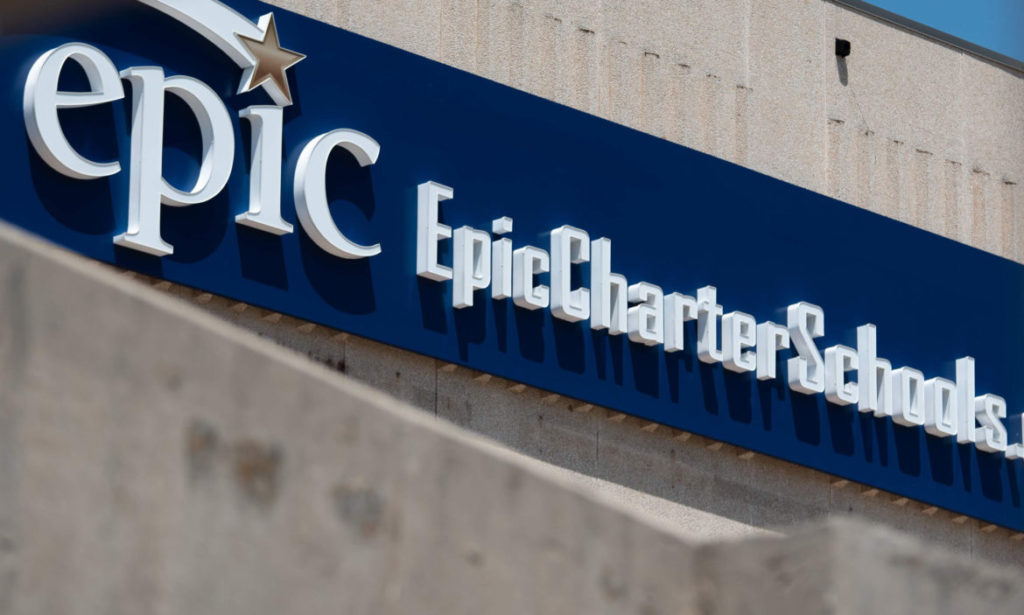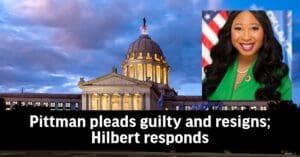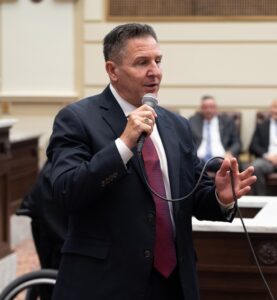The Statewide Virtual Charter School Board (SVCSB) met Tuesday to determine the fate of the state’s largest public school district, Epic Charter Schools. Amid the controversy surrounding the State Auditor and Inspector’s recent forensic audit of it, the SVCSB was tasked with deciding whether or not to begin the process of terminating Epic Charter Schools’ contract.
Legal counsel for the SVCSB, Assistant Attorney General Marie Schuble, spoke about the audit’s findings and emphasized that “this is not a meeting to decide whether or not to terminate Epic’s contract. This is a meeting to decide whether or not to start the process of proving whether or not there was wrongdoing. It can take a long time and there are many possible outcomes.”
During the bulk of the two-and-a half-hour-long meeting, Schuble cited a multitude of examples from the audit of financial malfeasance as evidence for why she believes that starting this process is the proper next step for the board to take.
“We have one mission here today—we are deciding whether or not to enter into the process,” stated Schuble. “This is an important distinction. The authority we have is related to statutes…it is not to do the job of the legislature or the attorney general.” She further explained, “It’s a pretty simple job—not to ask questions,” but simply to look at the case as it relates to the mission and responsibility of the board and to determine if there are “sufficient concerns to initiate this process.”
Board member Phyllis Shepherd, ultimately the only dissenting vote, opposed this viewpoint, saying, “I just think until Epic has a chance to go back and get a chance to prove whatever it is that they need to prove—just because it showed up on the audit doesn’t necessarily mean that it’s gospel…I just feel like it’s way too early to start even talking about that until all the facts are out in the open.” Schuble clarified that, on the contrary, “This process is the way to hear both sides. I have to prove every one of the facts at a hearing. They have a chance to refute every one of these facts at a hearing. There’s plenty of time for both sides to gather evidence, to negotiate. Termination is not the only option.”
John Harrington, board chairman, agreed with the attorney, saying, “we are not interrupting the process of school or education. At the end of the day we don’t know what the findings of this will ultimately be.” Essentially, he said that this is the only appropriate procedure. Schuble echoed, “Yes, this is the only way we have to enforce the terms of our contract.”
In fact, said Schuble, “Those students and teachers are why this board is here.” The intent is to “protect them and the schools.”
Eventually, the determination to proceed with the process of terminating the charter contract was approved 3-1 by the board.
The school and its founders are not strangers to criticism and allegations of fraud, as they have been inundated with controversy and legal problems since the school’s inception in 2010, and critics of the school specifically, and virtual schools in general, say that there is a lack of accountability and regulation with these types of schools that is inherently wrong.
Reactions on social media were varied, with many parents of Epic students worried about where this outcome leaves their children’s education.
Epic Superintendent, Bart Banfield, sent an email to parents immediately following the meeting, assuring them that the school would continue to operate as usual for the remainder of the year. He said, “we have no concerns the SVCSB’s actions will impact this school year in any of the 77 Oklahoma counties we operate [sic]. Our staff will continue to have jobs and be paid, and our students will continue to be served.” He went on to say that the school “[remains] confident the facts are on our side and truth will prevail once we are allowed to show evidence and make our case before the appropriate governing bodies.”
Schuble and the board were also adamant that should the termination happen, it will not be without warning and ample preparation, and that there are ways the school could continue to operate even if the board cancels its contract with Epic’s parent company, Epic One-on-One.
The hearing will not happen sooner than 90 days from now, which is January 11 of next year. This will give both sides time to adequately prepare. Epic maintains that it has committed no wrongdoing and that it intends to defend itself when the time comes.
This is an ongoing story.








